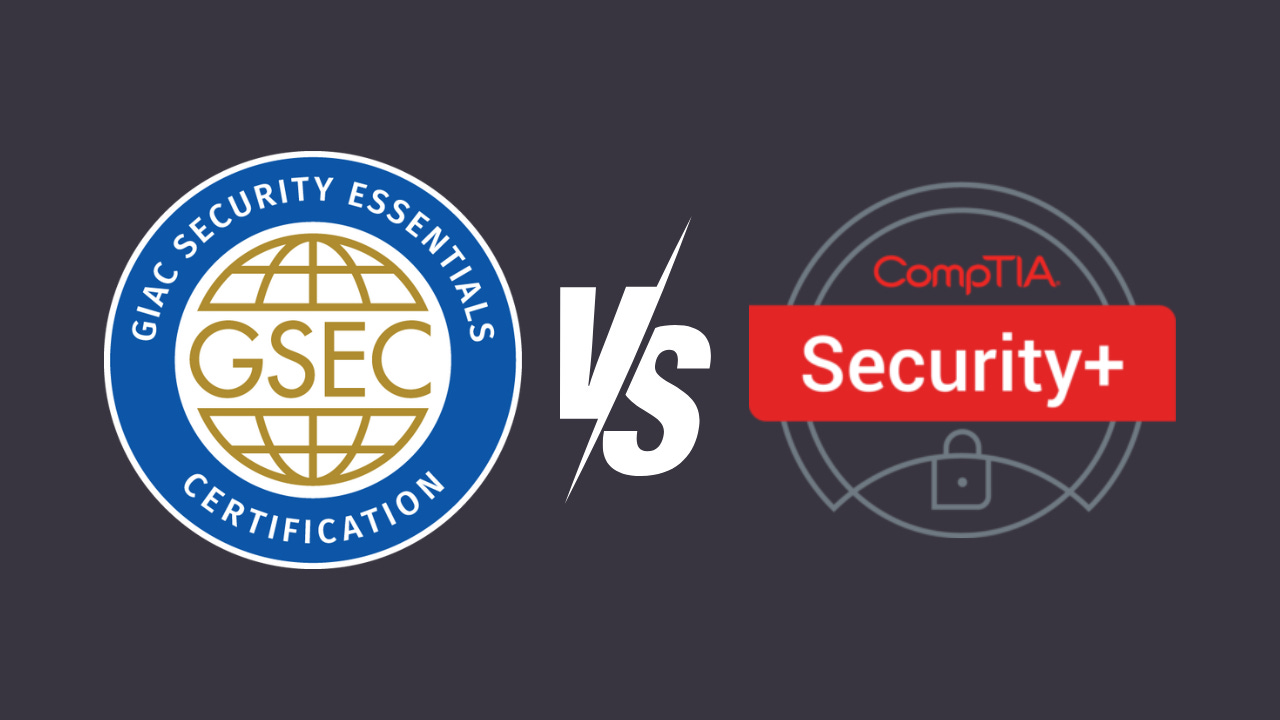What’s covered here?
- Do Cybersecurity Certifications Actually Help?
- The Most Valuable Beginner Cybersecurity Certifications
- How Certifications Keep You Accountable (I think)
- Why Take Cybersecurity Certifications?
- Are They Worth It For Beginners?
Do Cybersecurity Certifications Actually Help?
The value of cybersecurity certifications, in my opinion differs from the individuals experience.
Tangible Benefits: Security certifications can help overcome the classic "experience paradox" - you need experience to get a job, but need a job to gain experience. Certifications can serve as a proxy for experience, especially for entry-level positions.
Many organisations use certifications as filters in their hiring processes. According to the ISC² Cybersecurity Workforce Study, 86% of cybersecurity professionals have at least one certification, and 52% of hiring managers consider certifications when evaluating candidates.
Certifications often teach practical, hands-on skills that can be immediately applied in workplace scenarios. This is particularly true of certifications that include lab components or practical exams.
Practical Limitations: Certifications alone don't guarantee you'll be a decent security professional. The field requires analytical thinking, problem-solving abilities, and communication skills that aren't fully captured by certification exams: Some certifications focus heavily on memory rather than application.
The Most Valuable Beginner Cybersecurity Certifications
Several entry-level certifications that provide excellent foundations for cybersecurity careers:
CompTIA Security+ This certification has become the de facto standard for entry-level security positions. If you are totally new and just want something to get started - Go for this one. It covers network security, compliance, threats and vulnerabilities, access management, and cryptography. Security+ is widely recognised across industries and often serves as a prerequisite for government and defense contractor positions through its DoD 8570 compliance - US ONLY
(If you’re unsure about where to start, go for this one ^)
Certified Information Systems Security Professional (CISSP) Associate While the full CISSP requires years of experience, the Associate designation allows beginners to take the same exam and earn a provisional certification while they accumulate the required work experience. This certification demonstrates knowledge of security domains ranging from security architecture to identity management.
Certified Ethical Hacker (CEH) This certification validates skills in penetration testing and ethical hacking methodologies. It's designed to help you think like an attacker to better defend systems. The CEH covers reconnaissance techniques, enumeration, system hacking, malware threats, and a ton more.
GIAC Security Essentials (GSEC) This is a personal favourite of mine - This certification demonstrates hands-on skills in security administration. It covers areas like active defense, network security, cloud security, and cryptography, with a focus on applied knowledge rather than just theory (hence why I like it)
Microsoft Security, Compliance, and Identity Fundamentals (SC-900) This newer certification focuses on Microsoft-specific security concepts and is ideal for those working in environments heavily dependent on Microsoft technologies. It covers security, compliance, and identity concepts in the Microsoft ecosystem.
How Certifications Keep You Accountable (I think)
The certification process creates a framework for accountability in several ways:
Defined Body of Knowledge: Certifications outline specific domains of knowledge you must master, preventing gaps in your foundational understanding.
Measurable Progress: Practice exams and assessments provide concrete feedback on your learning progress, highlighting areas that need additional focus.
Time-Bound Goals: Exam scheduling creates deadlines that motivate consistent study habits.
Financial Investment: With costs ranging from £49 to £1000 for beginner certifications, the financial commitment encourages follow-through.
Continuing Education Requirements: Many cybersecurity certifications require earning continuing education credits to maintain certification status, ensuring ongoing learning.
Study Communities: Certification preparation often connects you with study groups, forums, and communities where peer accountability flourishes.
Why Take Cybersecurity Certifications?
People pursue cybersecurity certifications for a ton of reasons:
Breaking Into the Field: The cybersecurity industry faces a significant workforce gap (estimated at nearly 3.5 million unfilled positions globally according to Cybersecurity Ventures), making it relatively accessible to newcomers with demonstrated knowledge.
Building a Knowledge Foundation: Cybersecurity encompasses a vast range of domains and technologies. Certification study provides a structured way to build foundational knowledge across these areas.
Meeting Compliance Requirements: Many government positions and contracts specifically require certain certifications. For instance, DoD 8570 compliance mandates specific certifications for various cybersecurity roles.
Demonstrating Commitment: The effort required to earn certifications signals to employers your dedication to the field and willingness to invest in your professional development.
Salary Benefits: According to the 2023 ISC² Cybersecurity Workforce Study, certified professionals earn on average 22% more than their non-certified peers in similar roles.
Career Advancement: Certifications can help you transition from general IT roles into specialised security positions, providing a structured path for career progression.
Are They Worth It For Beginners?
For cybersecurity newcomers, entry-level certifications generally provide significant value:
They establish a common vocabulary and conceptual framework that helps you communicate effectively with other security professionals.
They provide exposure to a broad range of security domains, helping you identify areas where you might want to specialise.
They teach defensive mindsets and threat modeling approaches that form the foundation of effective security work.
They create networking opportunities through study groups and certification communities.
What do you think?
Thank you for reading: Keep it secure, keep it light-hearted!
WJPearce - CyberBrew






This is very useful advice. I've been preparing myself by doing free Cisco courses but a certificate trusted by employers will help my self confidence no end. I used to contract in legacy computing and what employers want more is a steadfast commitment to skill building as well as recognised qualifications and you can build out experience from there. Cheers!